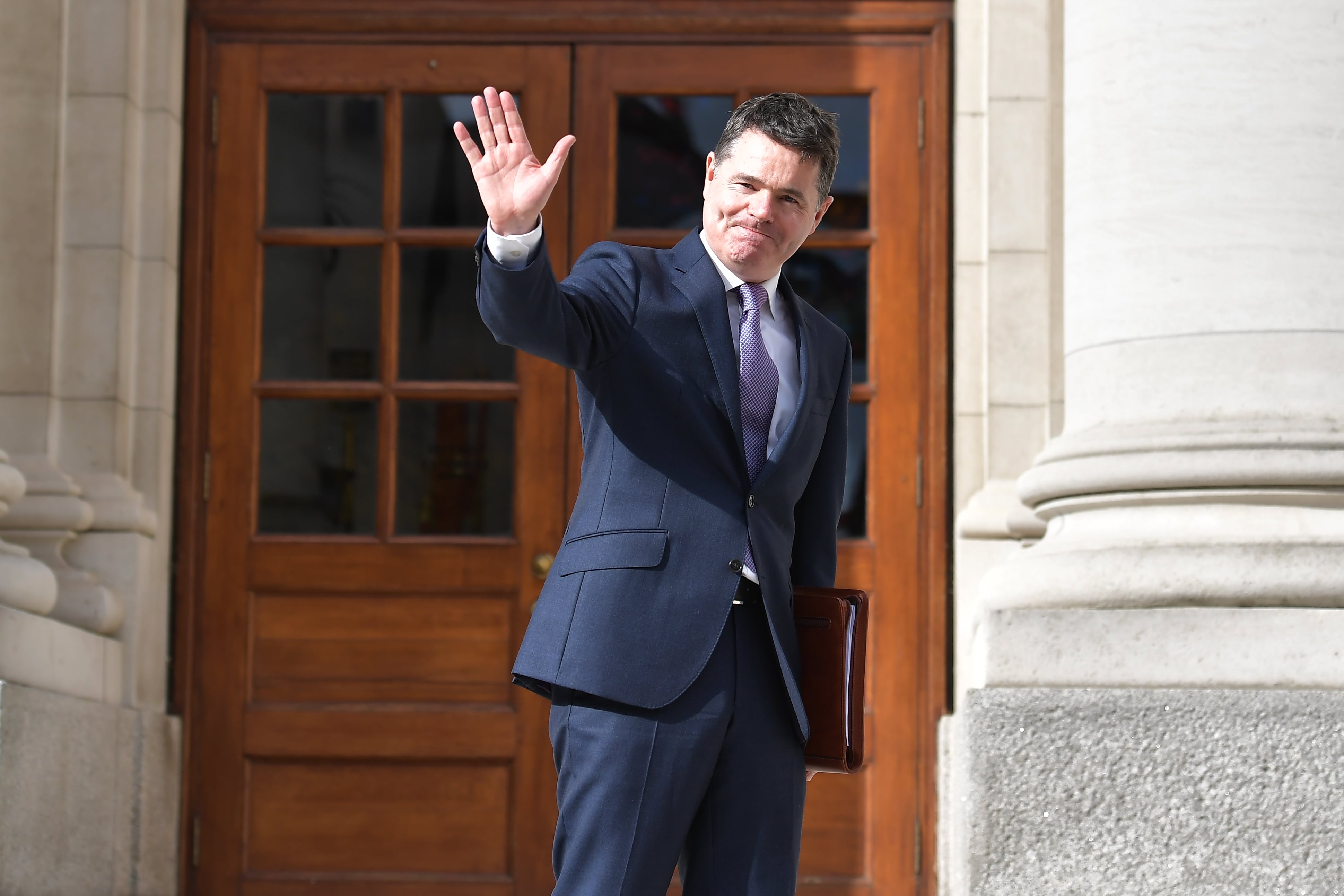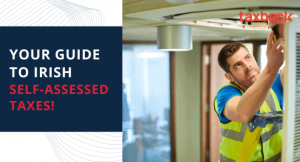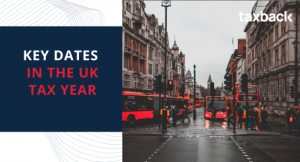Budget 2023 explained – What was announced and what does it mean for you?
Irish workers will have more money in their pockets within weeks
Budget 2023 will be forever remembered as 'the cost-of-living budget'.
Minister for Finance Paschal Donohoe and Minister for Public Expenditure Michael McGrath today unveiled Budget 2023 –consisting of an €11bn package which included €1.1bn in tax cuts and a €4.1bn in 'once-off measures'.
As a result of the budget, Irish workers can expect to see savings in their income tax, energy bills, rent and more.
Here, we break down everything you need to know about today's Budget announcement.
Learn how Budget 2023 has affected your take-home pay. Try our Budget 2023 calculator here.
Reduction in personal tax burden
As expected, Irish workers will benefit from a reduction in the tax burden.
However, after much speculation regarding indexation of the personal tax system and the introduction of a new 30% tax rate, the government has instead opted to increase the top tax rate band from €36,800 to €40,000 for single individuals. This means that workers can earn more before paying income tax at the higher rate of 40%.
Meanwhile, couples can earn €80,000 before paying tax at the higher rate. This change will result in savings of €800 a year for those on the higher rate and up to €1,600 for a couple.
Workers will see additional tax reductions through a €75 increase to the Personal, PAYE and Earned Income tax credits.
The Home Carer Tax Credit has also been raised by €100 – a move that Minister Donohoe said would support stay-at-home parents.

USC reduced
The Government is increasing the 2% Universal Social Charge (USC) Band - from €21,295 to €22,920.
Minister Donohoe said the change would ensure that full-time workers on the minimum wage would remain outside the top rates of USC.
What's more, the changes introduced will ensure that those who have a medical card and earn less than €60,000 per year, will pay a reduced rate of USC.
Housing and renting
A heavily anticipated tax credit for renters has been introduced – worth €500 per year.
The scheme is aimed at renters who do not qualify for other housing supports and has been back-dated to account for rent paid in 2022.
The Help-to-Buy Scheme has also been extended in its current form until the end of 2024.
Some changes in the tax treatment of landlords have also been announced.
For instance, a Vacant Homes Tax will come into action on residential properties which are occupied for less than 30 days in a 12-month period.
Get Your Irish Tax Refund Now!

Reduction in energy costs
Irish households across have faced substantial increases in energy bills in recent months.
With this in mind, Minister McGrath announced a 'Winter' package worth over €4bn.
To tackle the soaring cost of home heating and electricity, a total of three €200 energy credits will be introduced for all households.
The Government has also extended the Fuel Allowance scheme to help those at risk of fuel poverty to get through the winter.
The threshold has been changed to allow more people to become eligible for the scheme.
From 1 January 2023, the qualifying income threshold for the Fuel Allowance will increase from €120 to €200 above the relevant rate of the State Pension Contributory.
For those over 70s, the weekly Fuel Allowance means the limit will increase to €500 for single people and €1,000 for couples
All recipients of the normal weekly fuel allowance will receive a lump sum payment of €400 before Christmas also.
As a result, a single pensioner, living alone, in receipt of Fuel Allowance will receive an additional €2,375 between now and the end of 2023.
Cuts to college fees
Students will benefit from a once-off €1,000 reduction in third-level fees in 2022.
Families earning less than €100k will see a €500 reduction in fees.
The income limit to qualify for a 50% reduction in contribution fees under SUSI will be increased from €55,240 to €62,000, and all SUSI maintenance grants will be increased by between 10 and 14% in September 2023.
The Post-Graduate Fee Contribution Grant for eligible students of €3,500 will increase by €500 and the PhD stipend will increase too.
Finally, the government is extending the 20% public transport fare reduction and the Youth Travel Card discount of 50% on all operators' services to the end of 2023.
Healthcare
· More people will be eligible for free GP care. The change introduced through Budget 2023 will see the income limits for the means tested scheme being increased.
· Hospital inpatient charges have been removed for all public patients
· There will be an investment in women's health measures including expanding free contraception, currently available to women to those aged from 16 to 30 years. There will also be supports relating to IVF treatment.
The average Irish tax refund is €1,880
Social Welfare
Social welfare payments – including the state pension - will increase by €12 per week.
Also announced are:
· The Working Family Payment thresholds will be increased by €40 per week
· The Qualified Child Increase for under 12s will be raised to €42 per week and for over 12s to €50 per week
· The rate of Domiciliary Care Allowance will rise by €20.50 to €330 per month and will be made available to parents of babies who have to remain in hospital for six months
· One-off double week payment to social welfare recipients
· Normal Christmas Bonus to be paid in early December
· Extra €500 lump sum for those on Working Family Payment
· Double Child Benefit payment to be paid in November
Environment
Minister Donohoe indicated that the rate per tonne of carbon dioxide emitted for petrol and diesel will go up from €41 to €48.50 from 12 October.
This will mean that there will be an increase of just over two cents - VAT inclusive - per litre of petrol and diesel.
However, the minister also acknowledged the current cost-of-living challenges and said the Government is proposing to offset this carbon tax increase with a reduction to zero of the National Oil Reserves Agency (NORA) levy.

Petrol and diesel and electricity
Meanwhile, the Excise reduction of 21 cent per litre for petrol, 16 cents per litre for diesel, and 5.4 cents per litre for Marked Gas Oil are being extended to the end of February 2023.
The temporary reduction in the rate of VAT from 13.5% to 9% on the supply of gas and electricity is also being pushed out to the end of February 2023.
Increase to Small Benefit Exemption
The Government has also increased the annual limit for the Small Benefit Exemption from €500 to €1,000. This exemption allows an employer to provide limited non-cash benefits or rewards to their workers without the payment of income tax, PRSI and USC.
But what does Budget 2023 mean for you?
To help you understand exactly what the Government's announcement will mean for you, we've put together this handy Budget 2023 calculator.
Within a couple of minutes, you will get a clear picture of how the Budget will affect your take home pay and also if you are due a tax refund.
Try our Budget 2023 Calculator here.




